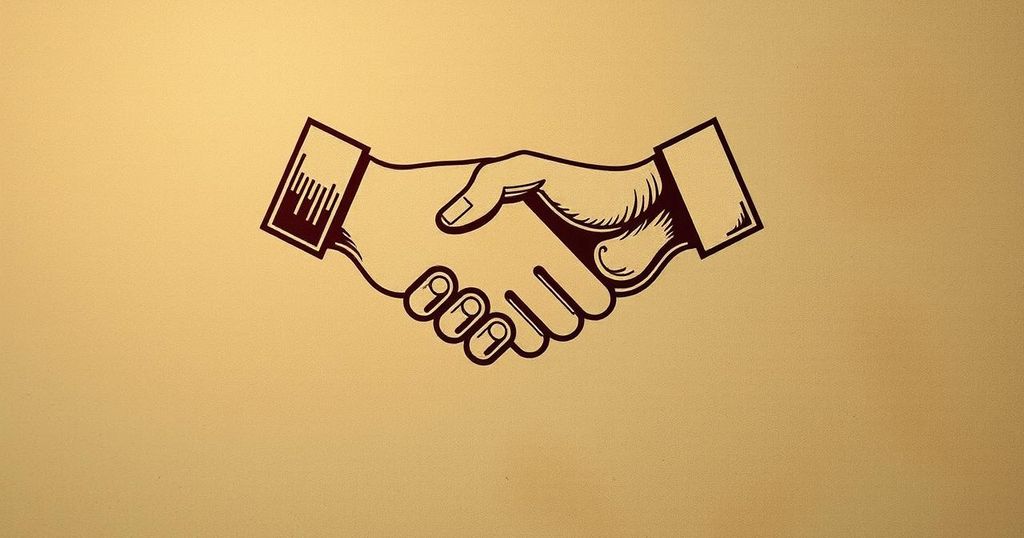M23 rebels withdrew from peace talks with the DRC after EU sanctions were enacted. The DRC government insisted it would still attend the negotiations scheduled in Angola. The conflict, tied to Rwanda’s historical actions, has severely impacted the region, leading to mass violence and displacement. The sanctions target Rwanda’s resource motivations in the conflict.
M23 rebels, supported by Rwanda, have withdrawn from peace negotiations with the Democratic Republic of Congo (DRC) just before their scheduled meeting in Angola. The withdrawal followed European Union sanctions imposed against M23 and Rwandan officials, which the rebels claim hindered the chances for fruitful talks. M23 had sought direct discussions with the DRC government, which had previously been reluctant to engage due to allegations that M23 acts on behalf of Rwanda.
Despite M23’s decision, the DRC government remains committed to attending the talks in Luanda. President Felix Tshisekedi, having initially rejected direct negotiations, opted to send a delegation after military setbacks and pressure from Angola, a regional ally. Government spokesperson Tina Salama affirmed the delegation’s participation, emphasizing that it was in response to the mediators’ invitation.
The ongoing conflict in eastern Congo, which intensified following Rwanda’s 1994 genocide, has claimed thousands of lives and led to massive displacement. The United Nations has accused Rwanda of supplying arms and combatants to support M23, while the Rwandan government contends its forces defend against threats from Congolese militias.
The EU sanctions targeting M23 and related entities are seen as significant, particularly those aimed at Rwanda’s mining sector. Zobel Behalal, an expert on organized crime, noted that these sanctions indicate a recognition of the link between natural resource profits and Rwanda’s involvement in the conflict. The M23’s Congo River Alliance criticized the sanctions as obstructive, arguing they threaten the prospects for direct dialogue.
Tensions extended to Belgium, prompting Rwanda to sever diplomatic ties following Belgium’s calls for strong EU measures against Kigali. In retaliation, Rwanda demanded Belgian diplomats exit the country within 48 hours, which Belgium’s Foreign Affairs Minister denounced as an excessive reaction.
The M23 rebels’ exit from peace talks poses significant challenges for efforts to resolve the ongoing conflict in eastern Congo, compounded by newly imposed EU sanctions. The situation highlights the complexities of regional dynamics involving Rwanda and DRC, as the conflict’s roots are intertwined with historical grievances and competition for resources. The DRC’s readiness to participate in talks despite M23’s withdrawal reflects a commitment to seeking diplomatic solutions amidst escalating violence and humanitarian crises.
Original Source: www.newsbreak.com






